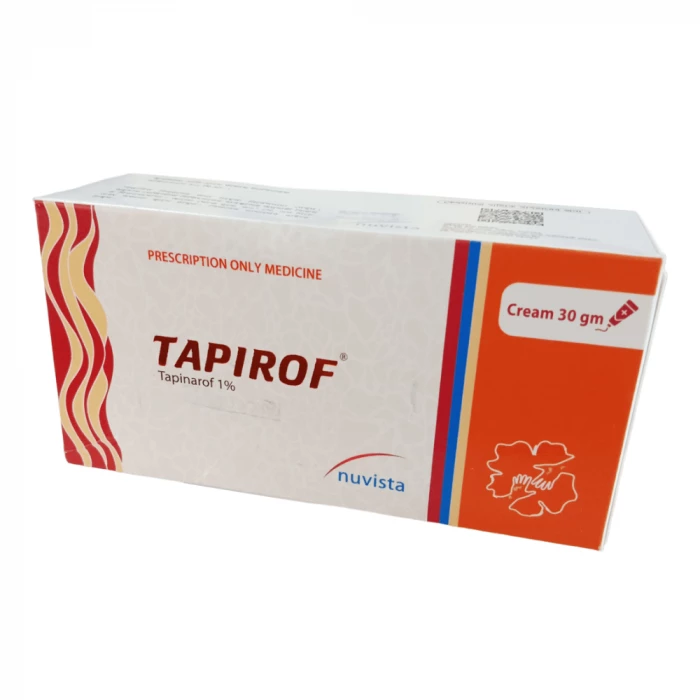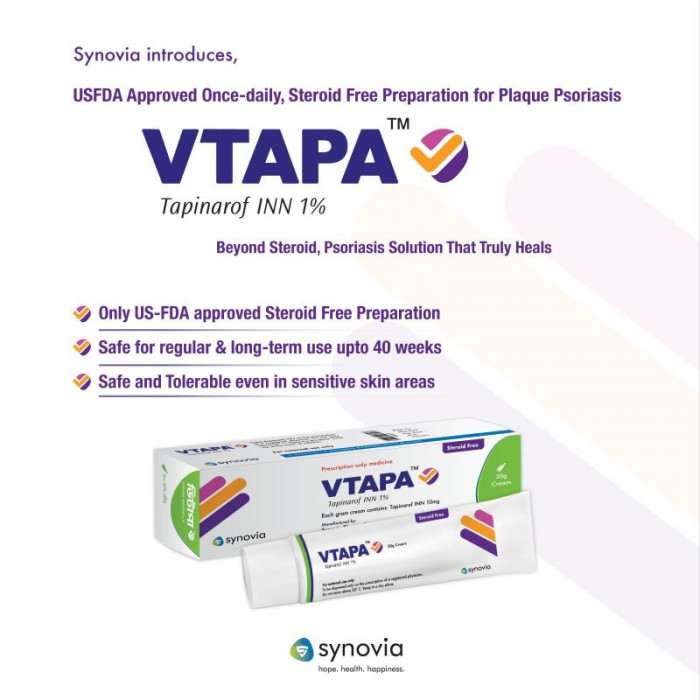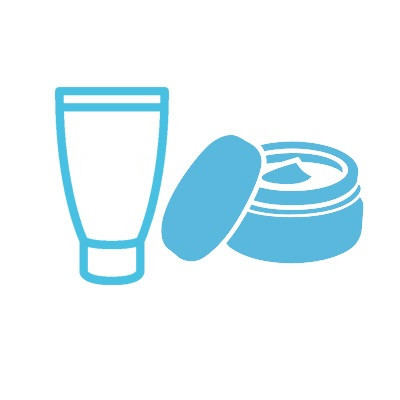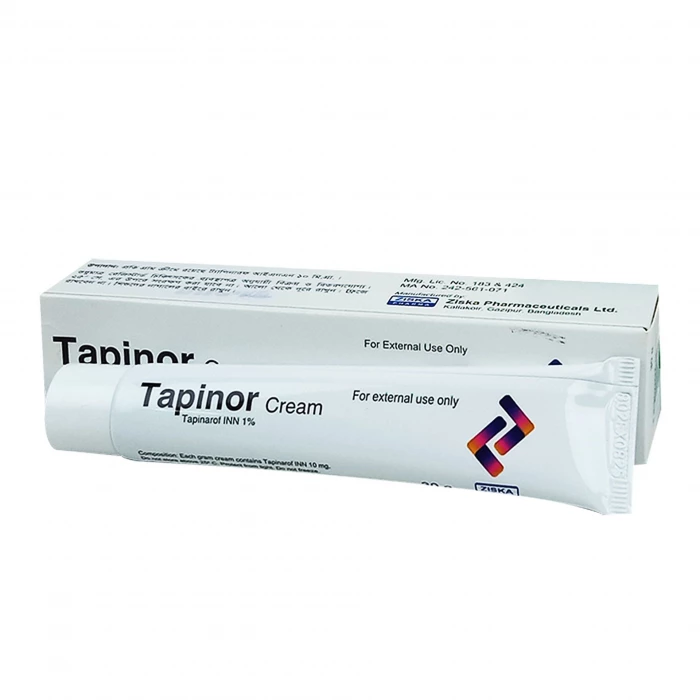
✔ 100% Authentic Product
👁️ Currently Viewing 1526
100% Genuine Products, Guaranteed
Safe & Secure Payments, Always
Fast, Secure & Efficient Delivery
Proper Packaging
 Cash on Delivery - All over Bangladesh
Cash on Delivery - All over Bangladesh Regular Delivery - 12-24 Hours, Dhaka City*
Regular Delivery - 12-24 Hours, Dhaka City* Regular Delivery - 24-48 Hours, All Over Bangladesh*
Regular Delivery - 24-48 Hours, All Over Bangladesh* ফ্রি ডেলিভারিঃ - ৯৯৯ টাকা+ অর্ডারে, ঢাকা
শহরে
ফ্রি ডেলিভারিঃ - ৯৯৯ টাকা+ অর্ডারে, ঢাকা
শহরে ফ্রি ডেলিভারিঃ - ২৯৯৯ টাকা+ অর্ডারে, ঢাকার
বাহিরে
ফ্রি ডেলিভারিঃ - ২৯৯৯ টাকা+ অর্ডারে, ঢাকার
বাহিরে
✅ Description:
Psoriasis is a chronic, non-communicable, and debilitating disease characterized by the rapid growth of skin cells, resulting in red, scaly patches. It can occur at any age but is most prevalent between the ages of 50 and 69. While its exact cause is unclear, genetic predisposition and autoimmunity are significant factors. Environmental triggers such as trauma, infections, sunburn, medications, and stress can provoke psoriasis.
Clinical Presentation Psoriasis primarily affects the skin and nails but can also impact joints and internal organs such as the eyes, heart, kidneys, and lungs. Common manifestations include:
- Raised red plaques with white or silver scales
- Itching and pain
- Psoriatic arthritis, leading to joint pain and inflammation
Types of Psoriasis
- Plaque Psoriasis: The most common form, characterized by thick, raised patches covered with a silvery scale, typically found on elbows, knees, lower back, and scalp.
- Guttate Psoriasis: Appears as small, drop-like lesions, often triggered by a streptococcal infection.
- Inverse Psoriasis: Occurs in skin folds, presenting as smooth, painful patches.
- Pustular Psoriasis: Marked by pus-filled bumps, usually on the hands and feet.
- Erythrodermic Psoriasis: A rare, severe form that causes widespread redness and scaling, potentially life-threatening.
- Nail Psoriasis: Affects fingernails and toenails, causing pitting, discoloration, and nail lifting.
- Psoriatic Arthritis: Involves swollen, tender joints, and can lead to permanent joint damage.
Diagnosis Diagnosis typically involves a physical examination, blood tests, and a skin biopsy. The Psoriasis Area and Severity Index (PASI) may be used to assess severity.
Treatment Treatment aims to manage symptoms through:
- Topical Therapies: Corticosteroids, vitamin D analogs (e.g., Tapinarof), retinoids, and calcineurin inhibitors.
- Systemic Therapies: Methotrexate, cyclosporine, retinoids, and biologics.
- Phototherapy: UVB light therapy.
- Combination Therapies: Combining topical and systemic treatments for better results.
Precautions and Considerations
- Allergic Reactions: Inform your doctor of any allergies to medications, especially Tapinarof.
- Medical History: Disclose any history of liver or kidney diseases, hypercalcemia, or hypervitaminosis D.
- Pregnancy and Breastfeeding: Use Tapinarof with caution during pregnancy and lactation.
- Application: Avoid contact with eyes, nose, or mouth. If contact occurs, rinse thoroughly with water.
- Age Restrictions: Not recommended for children under 12 years.
- Monitoring: Consult your doctor if there is no improvement after 1-2 weeks of treatment.
Impact on Quality of Life Psoriasis can significantly impact physical and emotional well-being, leading to social exclusion and stigma due to misconceptions about the disease's contagiousness.
Risk Factors and Triggers
- Stress, anxiety, and depression
- Smoking and alcohol consumption
- Obesity
- Skin injuries, infections, and certain medications
- Cold weather and hormonal changes
Prevention and Management
- Boost immunity and reduce infection risks
- Keep skin hydrated and moisturized
- Avoid extreme temperatures
- Manage stress and anxiety
- Quit smoking and limit alcohol consumption
Complications of Psoriasis can lead to other health issues, including psoriatic arthritis, obesity, hypertension, type 2 diabetes, heart diseases, metabolic syndrome, inflammatory bowel disease, and eye problems.
Specialist Consultation For accurate diagnosis and treatment, consult a dermatologist or an immunologist.
Safety Advices

Alcohol
UNSAFE
It is advisable not to take or limit alcohol as a precautionary measure.

Pregnancy
CONSULT YOUR DOCTOR
Tapirof 1% Cream should not be taken until prescribed. Your doctor will weigh the benefits and potential risks before prescribing it. Please consult your doctor.

Breastfeeding
CONSULT YOUR DOCTOR
It is not known if Tapirof 1% Cream passes into the breast milk. Please consult your doctor before taking Tapirof 1% Cream if you are breastfeeding. If you need to apply the cream or ointment on your breasts, don't do this shortly before giving a feed.

Driving
CAUTION
There have been no studies to investigate the effect of Tapirof 1% Cream on driving performance or the ability to operate machinery.

Kidney
SAFE IF PRESCRIBED
Let your doctor know if you have any history of kidney diseases before taking Tapirof 1% Cream. Your doctor will weigh the benefits and potential risks before prescribing Tapirof 1% Cream.

Liver
SAFE IF PRESCRIBED
Let your doctor know if you have any history of liver diseases before taking Tapirof 1% Cream. Your doctor will weigh the benefits and potential risks before prescribing Tapirof 1% Cream.
✔️ Composition
- Tapinarof
✔️ Uses of Tapinar
Manage plaque psoriasis in affected individuals
✔️ Side Effects of Tapinarof
- Itching
- Redness
- Stinging sensation
- Dryness
- Rash
✔️ Quick Suggestions:
- Use mild soap while taking baths and prefer warm baths.
- Always wear loose-fitting clothes to avoid further sweat and the spread of infections.
- Regularly change your socks and wash your feet. Avoid shoes that make your feet sweaty and hot.
- Do not walk barefoot at places like gym showers to prevent infections.
- Do not scratch the affected area of the skin as it can spread the infection to other body parts.
- Avoid sharing towels, combs, bed sheets, shoes, or socks with others.
- Wash your bed sheets and towels regularly.
- Avoid or limit the intake of alcohol and caffeine.
- Do not scratch or pick your skin to avoid getting the affected area infected.
- Manage stress, eat healthily, drink plenty of water, exercise regularly, and sleep peacefully.
✔️ Indication of Tapinarof
Tapinarof is used in the treatment of psoriasis.
✔️ Pharmacology
Tapinarof is a novel therapeutic agent classified as a therapeutic aryl hydrocarbon receptor-modulating agent (TAMA). Its effectiveness in treating psoriasis is attributed to its interaction with the aryl hydrocarbon receptor (AhR), a ligand-dependent transcription factor.
Mechanism of Action Upon binding to its ligand, AhR forms a heterodimer with the AhR nuclear translocator (ARNT). This complex then binds to DNA at specific recognition sites to regulate gene expression. AhR activation influences various transcription factors, including the nuclear factor κB (NF-κB) and nuclear factor erythroid 2-related factor 2 (Nrf2). Nrf2, a downstream product of AhR-induced transcription, possesses antioxidant properties that contribute to its therapeutic effects.
Role of AhR in Psoriasis Dysregulation of AhR is a hallmark of psoriasis. Patients with psoriasis exhibit higher serum concentrations of AhR. Activation of AhR in vitro has been shown to result in a gene expression profile implicated in the pathogenesis of psoriasis. Key effects of AhR activation include:
- Expansion and differentiation of Th17 and Th22 cells, which release inflammatory cytokines IL-17 and IL-22.
- Recruitment of persistent skin resident memory T cells, contributing to the chronic nature of psoriasis.
Tapinarof binds specifically to AhR and modulates a unique set of genes dysregulated in psoriasis, distinct from other AhR ligands. This specificity is crucial in its therapeutic role:
- Barrier Protein Expression: Tapinarof induces the expression of barrier proteins such as filaggrin, hornerin, and involucrin. These proteins help restore skin barrier function and epidermal health.
- Reduction of Oxidative Stress: By activating Nrf2, Tapinarof decreases oxidative stress, which is beneficial in reducing psoriatic inflammation.
The anti-inflammatory effects of Tapinarof are potentially due to its dual action on AhR and Nrf2. Not all AhR agonists activate the Nrf2 pathway; for example, 2,3,7,8-tetrachlorodibenzo-p-dioxin does not exhibit antioxidant activity post-AhR activation. The unique ability of Tapinarof to engage both AhR and Nrf2 pathways is hypothesized.
✔️ Dosage & Administration of Tapinarof
- Always use it exactly as advised by your doctor.
- Wash your hands before and after applying Tapinarof.
- It is meant only for application on the skin.
- Apply it on the area of the skin which has psoriasis (red and white scaly patches).
- You can squeeze the medicine directly on the skin or if you want you can squeeze it on your finger first.
- Apply it in a good quantity (thickly) and then gently rub it in to cover the area of psoriasis, till it disappears.
- Always wash your hands after use.
✔️ Interaction
Before taking Tapinarof, let your doctor know if you have any fungal, viral, or protozoa infections, liver, kidney diseases, hypercalcemia (high calcium levels in the blood), or hypervitaminosis D (excess Vitamin D levels in the blood).
✔️ Contraindications
Hypersensitive to any of its components.
✔️ Pregnancy & Lactation
During pregnancy, this medication should be used only when clearly needed. Discuss the risks and benefits with your doctor.
It is unknown if this medication passes into breast milk. Consult your doctor before breastfeeding.
✔️ Precautions & Warnings
- Disclose any history of liver or kidney diseases, hypercalcemia (high calcium levels in the blood), or hypervitaminosis D (excess Vitamin D levels in the blood) to your doctor.
- Use Tapinarof only with proper consultation and caution if you are pregnant or breastfeeding.
- Ensure Tapinarof does not come into contact with your eyes, nose, or mouth. Rinse thoroughly with water if contact occurs.
- Tapinarof is not recommended for children under 12 years of age.
- If you do not notice any improvement in your condition after using Tapinarof for one to two weeks, consult your doctor.
✔️ Storage Conditions:
Store in a cool and dry place away from sunlight
⚠️Disclaimer:
At ePharma, we’re committed to providing accurate and accessible health information. However, all content is intended for informational purposes only and should not replace medical advice from a qualified physician. Please consult your healthcare provider for personalized guidance. We aim to support, not substitute, the doctor-patient relationship.











